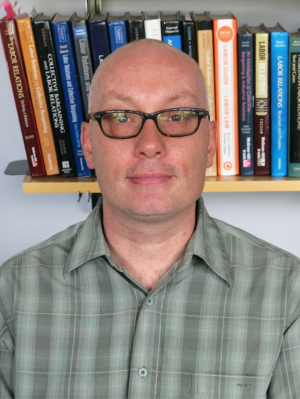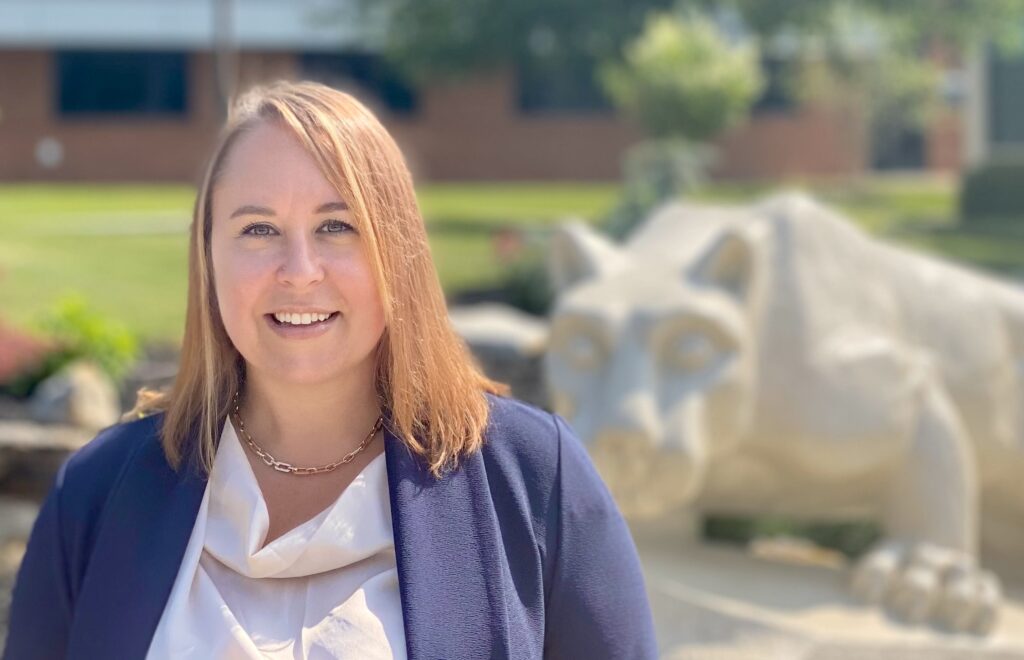
We recently caught up with Brian Redmond, the director of the organizational leadership program at Penn State. Following are some details about Brian’s teaching experiences and what he has learned from Penn State World Campus students.
Please tell us about your teaching background and how you got to your current position at Penn State.
I started teaching in graduate school as summer employment and fell in love with it. I never intended to become a teacher, but interacting with students changed my career path. I then started teaching part-time online at my first institution and took my first full-time job teaching in the classroom and online. I started teaching part-time for Penn State World Campus in 2006 when the psychology program was just launching, then moved to full-time in 2007 when the program was fully available. I gradually moved up in positions to where I am today — director of the organizational leadership (OLEAD) program.
What courses do you currently teach for Penn State World Campus?
I teach all of the courses in the OLEAD program, but the ones I teach most frequently are Leadership in a Global Context and Communication Skills for Leaders.
Can you tell our readers more about the field of organizational leadership?
Leadership is a funny field. For us as humans, some things never change about leadership, such as the need to motivate and inspire others. Other things vary in their importance on a day-to-day basis, such as the need to focus on either the task or people, depending on the needs of the situation. But there are things that constantly change, and that mostly is the “how.” As technology and culture change and mesh, leaders need to adapt more and more with every new generation. In fact, adaptiveness, creativity, and innovation are probably the three biggest competencies that a leader needs now and going forward.
Where do you think the field is headed?
As mentioned before, leadership is changing, somewhat. The focus is shifting away from specific task skills, which will be performed more and more by automation, and more and more toward higher process skills, such as critical thinking, problem-solving, and creativity/innovation. As we all know, there never is enough good leadership; it is one of the few jobs that will resist being replaced by things like artificial intelligence and robots. However, it will require that leaders truly develop higher-level thinking skills, not just management skills.
What have you learned from teaching Penn State World Campus students?
In short, a lot. I can’t even begin to list them all, so I will pick a few of my top favorites. First and foremost, I’ve really enhanced my ability to communicate in written words by having to make certain that what I mean is conveyed in as concise a message as possible to help our busy students. But more importantly, I’ve learned a lot about compassion and empathy. Most of my students have been pursuing their degrees in amazing ways. I have had students submit work while nine months pregnant or about to be deployed to combat, or after having been involved in a crime scene shooting, or recovering from hurricanes and ice storms, along with experiencing many other life events. In that, I’ve learned to be adaptive, innovative, and flexible so that I can help them become better leaders themselves.
What inspires you as a teacher?
My students. In particular, because I teach topics that are relevant to their work lives, what really keeps me going is when a student says to me, “I was able to use that idea right away at my job” or “I was able to lead my work group through this tough issue because of what I learned in your class.”
How do you stay in touch with graduates of the program?
I love it when I receive an email from a former student telling me of a success story in their life or asking for a recommendation for graduate school because of the relationship we established when we worked together. I also use LinkedIn and see some of my former students there as well. My program is currently working on establishing some sort of alumni program.
What is your favorite thing to do outside of the classroom?
I have been on a science fiction kick lately. This was a passion of mine when I was younger, and for the past year or so I’ve been really been enjoying revisiting the idea by reading some classic novels like Dune and watching 1950s and 1960s space movies. I think I especially enjoy seeing how people envisioned the future from a time past and where they were right and where we still have to innovate.
What makes you a proud Penn Stater?
Penn State World Campus. This encompasses a lot: the students, the people I work with day in and day out in advising, program management, instructional design, faculty development, and on and on. I really enjoy being affiliated with one of the best online schools in the world and making a difference with the education we provide.

